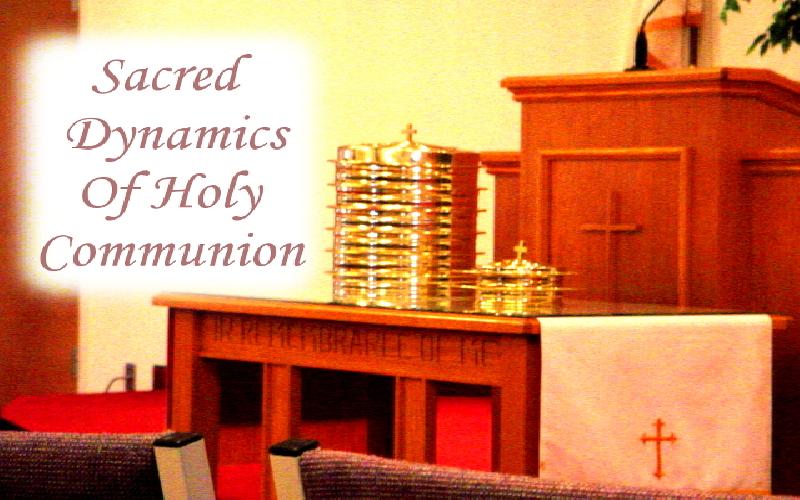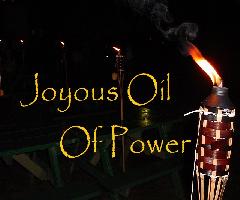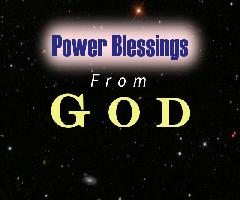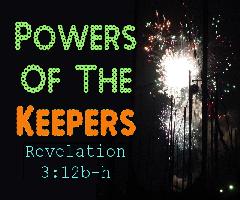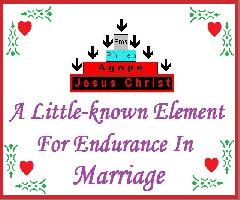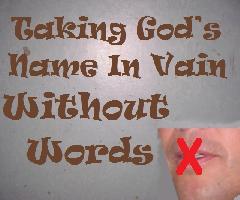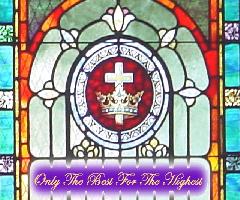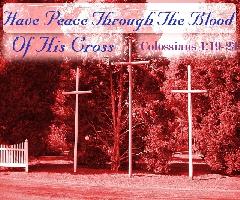Way too often the truths of the Holy Bible have been muddled, even squelched, by the unbiblical ideas of people, usually by those that one might call the clergy. Holy Communion, also known as The Lord’s Supper, has certainly fallen into that category. But let us see what God’s unchanging Word says. For this we will look at a number of Holy Scriptures, but we will focus upon 1 Corinthians 11:23-32 from which we will see two main holy dynamics.
I. Sacred Tradition 1Corinthians 11:23-25
“For I received from the Lord that which I also delivered to you, that the Lord Jesus in the night in which He was betrayed took bread; 24 and when He had given thanks, He broke it and said, ‘This is My body, which is for you; do this in remembrance of Me.’ 25 In the same way He took the cup also after supper, saying, ‘This cup is the new covenant in My blood; do this, as often as you drink it, in remembrance of Me.’”
While some traditions are worthless, even sinful, this one of using bread and wine as a memorial was instituted by Jesus Christ the night before He died and it is commanded by Him for His disciples to observe it. He had spoken about eating His body and drinking His blood some time before that (John 6:48-58) but many Jews took an exception to it, not understanding what He meant, thinking He meant His literal physical body and blood. In later years after His ascension rumors circulated that Christians were practicing cannibalism. And, centuries later, an apostate church would declare the elements of bread and wine turn into Christ’s body and blood during a consecrating prayer.
Christ instituted this tradition at a Passover meal. Jews were to celebrate the Passover every year to commemorate their ancestors’s exodus from Egypt. The meal consisted of various items {1}. One was bitter herbs (Exodus 12:8) to remind them their ancestors suffered the bitterness of slavery while in Egypt. However, to my knowledge, no symbolism was assigned to the bread and wine, items usually included in every meal.
Christ changed that at the “Last Supper”, taking these usual elements and incorporating them into a remembrance and representation of His work of salvation for us. This is also, in part, a celebration of the spiritual exodus each person undergoes when they forsake the world and surrender to God through Christ. So, the physical items of bread and wine (grape juice in many churches today) are symbols. Just as the bitter herbs of the Passover meal were not the actual bitterness of slavery, the bread and wine are not the actual body and blood of Christ.
No doubt most of the First Century Christians knew this, but as more and more Gentiles became Christians there was less understanding of it. And though the New Testament Holy Scriptures were completed before 100 AD, circulation of copies of the Gospels and epistles would be a far cry from what happens in our time in regard to printing and copying. And although there were some copies of the Word, adherence to the Word was more neglected in later years by many, even to the point where it was thought by some that salvation had to be worked for and earned.
At some point {2}, what came to be known as the Catholic Church eventually took the words of Christ as literal. They believed when by prayer a priest consecrated the elements they were changed into the actual body and blood of Christ (transubstantiation). To them Christ was re-sacrificed as a bloodless sacrifice at each mass. Eventually they came to think that such sacrifices were needed for the current sins for the people.
The bread wafer, eventually call the host and the Eucharist, became an idol. I was raised Roman Catholic. We were taught we always had to genuflect or bow our heads when in direct line to the “tabernacle" where the hosts were stored, even if just driving by. There was a feast where the host was paraded through the streets in a monstrance. During a mass, just after being consecrated the priest would raise the host and we would immediately kneel and repeat three times “Lord I am not worthy you should come under my roof. Speak but the word and your servant shall be healed."
Once I came to Christ and read the Holy Scriptures I realized that transubstantiation was not true. To kneel before a raised bread wafer was idolatry. So, when I was at a cousin’s wedding which included a mass I did not kneel. I did not want to affirm idolatry in the mind of the Catholics and I wanted to proclaim the efficacious work of Christ. I did not want to weaken my conscience and the ability to take a stand. We can actually help damn people by being nice and compromising. Being at peace with all men begins with being at true peace with God, and having true peace with God never means permitting sin or compromise with the world.
In Catholic teaching, receiving Holy Communion was one of many things a Catholic was supposed to do in order to receive grace. By neglecting the written Word of God and going by the unbiblical theology of man the clergy was able to “keep the flock” by having them trust in a sacrament for their salvation and not really trust in Christ. The flock feared the church more than they feared God. This was just part of the deadly darkness that gripped the souls of multitudes for centuries and still grips the souls who trust the word of man rather than the Word of God.
However, down through the centuries there were some that knew the true Word of God and took a stand against the practice in various ways. Many were heavily persecuted because of this and some were even killed. Nevertheless many of those who realized that the physical elements were only sacred symbols and not the actual body and blood of Christ had a personal relationship with God through Christ.
II. Sacred Declaration In Act And Life 1 Corinthians 11:26-32
Verse 26: “For as often as you eat this bread and drink the cup, you proclaim the Lord's death until He comes."
Declaring His All Sufficient Death
Hebrews 9:24-28 is one passage among many that clearly shows that the sacrificial death of Christ was completely sufficient for all sinners and all time: “For Christ did not enter a holy place made with hands, a mere copy of the true one, but into heaven itself, now to appear in the presence of God for us; 25 nor was it that He would offer Himself often, as the high priest enters the holy place year by year with blood that is not his own. 26 Otherwise, He would have needed to suffer often since the foundation of the world; but now once at the consummation of the ages He has been manifested to put away sin by the sacrifice of Himself. 27 And inasmuch as it is appointed for men to die once and after this comes judgment, 28 so Christ also, having been offered once to bear the sins of many, will appear a second time for salvation without reference to sin, to those who eagerly await Him."
As you can clearly see, the doctrine that Christ needs to be re-sacrificed every day (or even just once) is wrong and is heresy. His one time death destroys sin, saves us from the wrath of the Father, and completely saves us.
His one sacrifice was completely sufficient. As it is written in 1 John 2:1-2, “My little children, I am writing these things to you so that you may not sin. And if anyone sins, we have an Advocate with the Father, Jesus Christ the righteous; 2 and He Himself is the propitiation for our sins; and not for ours only, but also for those of the whole world." Another way to say propitiation is “an appeasing” {3}.
Before this verse, 1 John 1:9 tells the disciple if we
confess our sins He is faithful and just to forgive us and also cleanse us from all (not some) unrighteousness. There is nothing we must do to make up for our sins and if we physically die while in Christ we are immediately brought into His presence. His all atoning death was sufficient. He does not need to be re-sacrificed each time we sin. And because of the truth of 1 John 1:9 and similar passages there is no purgatory -- a fictitious place never mentioned in the Holy Scriptures but invented by clergy who knew neither the written Word of God nor Christ Himself.Declaring His Ever Present Life
First of all, and once again, it must be clear in our minds that physical death never means the cessation of existence {4}. And when it came to the Savior, Jesus Christ, for our salvation He was raised from the dead after three days. And for the benefit of all who would fully trust in Him centuries afterwards, He ascended.
Looking at the Holy Word of God it is a spiritual reality that He is everywhere and desires not just to be present, but to dwell in each person {5}. Holy Communion is to represent what each Christian ought to be doing every moment -- being in communion (fellowship) with the desires and the deeds of Christ. Since the Word states that “the life” (same word is translated as soul) is in the blood (Leviticus 7:14, Deuteronomy 12:23), partaking of the cup of wine or juice declares to all that the disciple is in unison with the desires of God. Partaking of the bread speaks to the disciple doing what Christ would do every moment.
With that, let us now consider well the following from 1 Corinthians 10:14-17, keeping in mind the New American Standard Bible’s term “sharing” also expresses “communion” and “fellowship”: “Therefore, my beloved, flee from idolatry. 15 I speak as to wise men; you judge what I say. 16 Is not the cup of blessing which we bless a sharing in the blood of Christ? Is not the bread which we break a sharing in the body of Christ? 17 Since there is one bread, we who are many are one body; for we all partake of the one bread.”
Much can be said here but to be concise for our purposes the simple truth is real Christians will stop practicing sin. It is not that a real Christian will never sin again, but because they reverently love God they will eventually learn to stop practicing sin and not even dabble in it. Since Christ died and rose again, since He dwells within a true Christian, that person will have the desire of Christ and do the deeds of Christ. Partaking of the Lord’s Supper is a declaration of this to all.
Declaring His Return
As you see, the Lord’s Supper inspires numerous thoughts and emotions within a disciple such as sorrow for sin, repentance, love toward the ever present Christ, and a joyous expectation of His return. With that there needs to be the fear of God. All the days prior to receiving the Lord’s Supper a devout disciple will keep watch on his attitude of heart and his behavior, confessing sin to the Father through Christ when sin is committed, and endeavoring by God’s grace to walk more in holiness every day.
True disciples expect His glorious return and by His grace also expect to rule and reign with Him on earth. So, by His grace we prepare ourselves. As it is written in 1 John 3:1-3, “See how great a love the Father has bestowed on us, that we would be called children of God; and such we are. For this reason the world does not know us, because it did not know Him. 2 Beloved, now we are children of God, and it has not appeared as yet what we will be. We know that when He appears, we will be like Him, because we will see Him just as He is. 3 And everyone who has this hope fixed on Him purifies himself, just as He is pure.”
Therefore, it is written in 1 Corinthians 11:27-32,
“. . . whoever eats the bread or drinks the cup of the Lord in an unworthy manner, shall be guilty of the body and the blood of the Lord. 28 But a man must examine himself, and in so doing he is to eat of the bread and drink of the cup. 29 For he who eats and drinks, eats and drinks judgment to himself if he does not judge the body rightly. 30 For this reason many among you are weak and sick, and a number sleep. 31 But if we judged ourselves rightly, we would not be judged. 32 But when we are judged, we are disciplined by the Lord so that we will not be condemned along with the world.”
As we near the end of the Gentile Age the judgment of the world draws very near {6}. However, anyone reading this can be very near to the Father through Christ by surrendering to the Father through Christ. Once you do that remain in fellowship with Him.
Notes:
{1} Freeman, James M.: Manners And Customs Of The Bible (Logos International, Plainfield, NJ: 1972) pp 385-6
{2} Qualben, Lars P.: A History Of The Christian Church (Thomas Nelson And Sons, New York: 1964) p134
{3} From an electronic version of Strong’s Exhaustive Concordance by James Strong incorporated in the Online Bible program, and so throughout the article whenever the ancient language is referred to and no other authority is cited.
{4} Please read You Still Exist After Death at http://thesureword.expertscolumn.com/article/you-still-exist-after-death .
{5} Please also read Jesus In Our Midst at http://holybibletreasures.expertscolumn.com/article/jesus-in-our-midst .
{6} Please also see Tornado Warning (From God) at http://holybibletreasures.expertscolumn.com/article/tornado-warning-god .
This article was written in the form of a sermon (message) outline with comments. God willing by November 12, 2017 (hopefully much sooner), you should be able to hear the actual message (sermon) by selecting a link at http://www.sapphirestreams.com/life/audioM.html#M472 .
Unless otherwise noted all Holy Scripture is from the New American Standard Bible changing LORD to YHVH as it rightly should be when the text so indicates and adding “(The Existing One)” to readily express the meaning of His Name without making repeated explanations in articles. * = For other versions the spelling of some words is updated for our time in addition to changing LORD to YHVH as it rightly should be when the text so indicates.
Not responsible for any advertisements appearing with this article nor am I necessarily in agreement with any of them. The statements of this paragraph hold true not only for this article, but for everything I have placed on the Internet.
